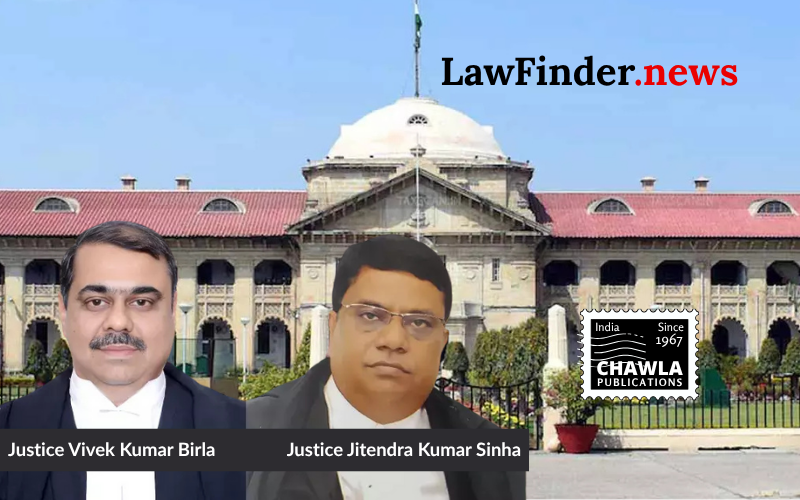Court Cites Doubts on Eyewitness Credibility and Inconsistencies in Prosecution's Evidence
In a significant judgment, the Allahabad High Court has acquitted Suresh, the surviving appellant in the 1984 murder case of Charan Singh, citing failure by the prosecution to establish guilt beyond reasonable doubt. The Division Bench comprising Justices Vivek Kumar Birla and Jitendra Kumar Sinha overturned the trial court's conviction, emphasizing inconsistencies in the prosecution's evidence and the doubtful presence of eyewitnesses at the crime scene.
Suresh, along with four other co-accused, was initially convicted under Sections 302, 149, and 148 of the Indian Penal Code, facing life imprisonment for murder. The case, which revolved around a familial dispute over a tractor, saw the High Court scrutinizing the prosecution's narrative and evidence, particularly the testimony of related eyewitnesses.
The court's analysis centered on the credibility of eyewitnesses Kunwar Pal, Mahendra, and Kishan Dutt, whose conduct was deemed unnatural, as they did not attempt to aid the deceased immediately after the shooting. Furthermore, discrepancies between the eyewitness accounts and medical evidence presented by Dr. P.P. Pathak raised significant doubts. The postmortem report indicated injuries inconsistent with the prosecution's timeline and method of assault, questioning the alleged scenario of Charan Singh being shot while seated on a tractor.
The judgment also highlighted the absence of ballistic evidence, such as empty cartridges and firearm marks on the tractor, which further weakened the prosecution's case. The court noted the defense's plausible alternative theory, suggesting enmity with other villagers, including Mohan Lal, previously convicted for murdering Charan Singh's father, as a potential motive for the crime.
The High Court's decision emphasizes the importance of thorough scrutiny in criminal trials, particularly when relying on testimonies of related witnesses. The judgment underscored the necessity for the prosecution to present a coherent and credible narrative, backed by consistent and reliable evidence.
The acquittal of Suresh marks a pivotal moment in a decades-long legal battle, reflecting the judiciary's commitment to ensuring justice amidst intricate familial and evidentiary complexities. The court ordered the cancellation of Suresh's bail bonds and discharged his sureties, directing the Chief Judicial Magistrate of Mathura to comply with its orders within the stipulated timeframe.
Bottom Line:
Evidence of related and interested witnesses cannot be discarded solely on the ground of relationship with the deceased - It must be scrutinized carefully. However, the presence of eye witnesses at the place of occurrence should be credible and consistent with the overall evidence.
Statutory provision(s): Indian Penal Code Sections 302, 149, 148; Criminal Procedure Code Section 313; Evidence Act, 1872.
Har Swaroop v. State, (Allahabad)(DB) : Law Finder Doc Id # 2775466




